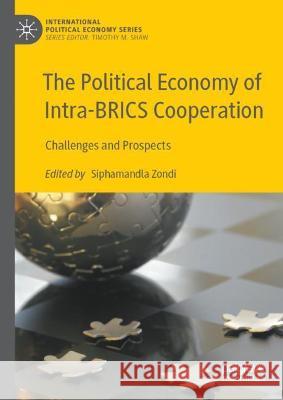The Political Economy of Intra-Brics Cooperation: Challenges and Prospects » książka
topmenu
The Political Economy of Intra-Brics Cooperation: Challenges and Prospects
ISBN-13: 9783030973964 / Angielski / Twarda / 2022 / 277 str.
The Political Economy of Intra-Brics Cooperation: Challenges and Prospects
ISBN-13: 9783030973964 / Angielski / Twarda / 2022 / 277 str.
cena 563,56
(netto: 536,72 VAT: 5%)
Najniższa cena z 30 dni: 501,19
(netto: 536,72 VAT: 5%)
Najniższa cena z 30 dni: 501,19
Termin realizacji zamówienia:
ok. 22 dni roboczych.
ok. 22 dni roboczych.
Darmowa dostawa!
Kategorie BISAC:
Wydawca:
Springer Nature Switzerland AG
Seria wydawnicza:
Język:
Angielski
ISBN-13:
9783030973964
Rok wydania:
2022
Ilość stron:
277
Wymiary:
21.0 x 14.8
Oprawa:
Twarda
Dodatkowe informacje:
Wydanie ilustrowane











